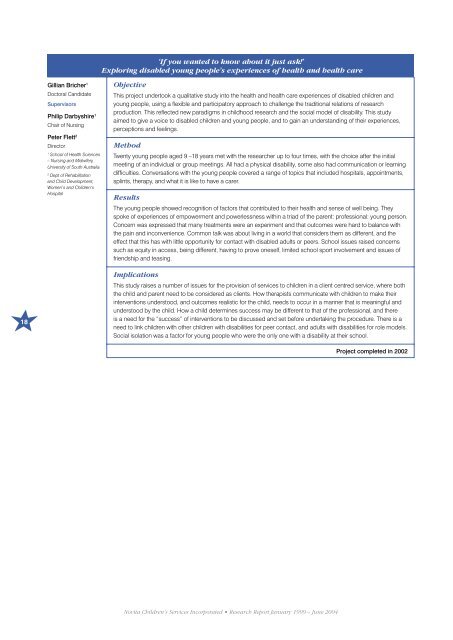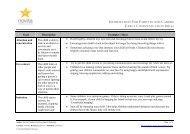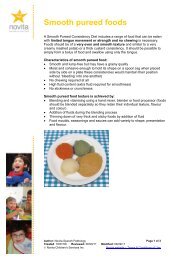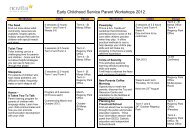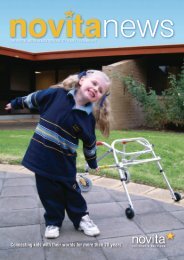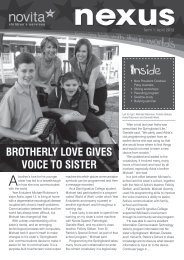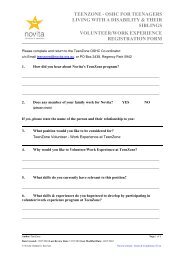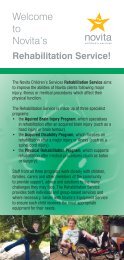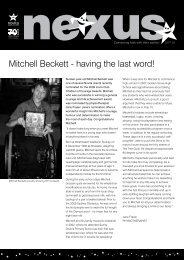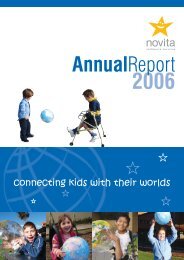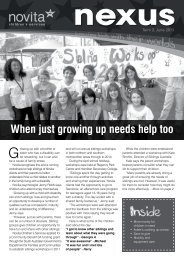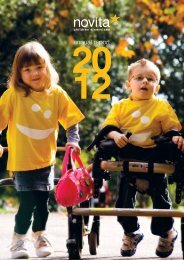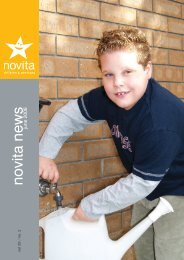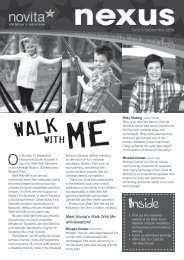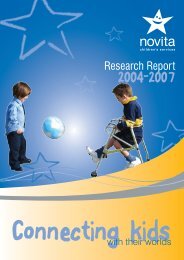Novita Research Report January 1999 - Novita Children's Services
Novita Research Report January 1999 - Novita Children's Services
Novita Research Report January 1999 - Novita Children's Services
Create successful ePaper yourself
Turn your PDF publications into a flip-book with our unique Google optimized e-Paper software.
‘If you wanted to know about it just ask!’<br />
Exploring disabled young people’s experiences of health and health care<br />
Gillian Bricher 1<br />
Doctoral Candidate<br />
Supervisors<br />
Philip Darbyshire 1<br />
Chair of Nursing<br />
Peter Flett 2<br />
Director<br />
1<br />
School of Health Sciences<br />
– Nursing and Midwifery,<br />
University of South Australia<br />
2<br />
Dept of Rehabilitation<br />
and Child Development,<br />
Women’s and Children’s<br />
Hospital<br />
Objective<br />
This project undertook a qualitative study into the health and health care experiences of disabled children and<br />
young people, using a flexible and participatory approach to challenge the traditional relations of research<br />
production. This reflected new paradigms in childhood research and the social model of disability. This study<br />
aimed to give a voice to disabled children and young people, and to gain an understanding of their experiences,<br />
perceptions and feelings.<br />
Method<br />
Twenty young people aged 9 –18 years met with the researcher up to four times, with the choice after the initial<br />
meeting of an individual or group meetings. All had a physical disability, some also had communication or learning<br />
difficulties. Conversations with the young people covered a range of topics that included hospitals, appointments,<br />
splints, therapy, and what it is like to have a carer.<br />
Results<br />
The young people showed recognition of factors that contributed to their health and sense of well being. They<br />
spoke of experiences of empowerment and powerlessness within a triad of the parent: professional: young person.<br />
Concern was expressed that many treatments were an experiment and that outcomes were hard to balance with<br />
the pain and inconvenience. Common talk was about living in a world that considers them as different, and the<br />
effect that this has with little opportunity for contact with disabled adults or peers. School issues raised concerns<br />
such as equity in access, being different, having to prove oneself, limited school sport involvement and issues of<br />
friendship and teasing.<br />
18<br />
Implications<br />
This study raises a number of issues for the provision of services to children in a client centred service, where both<br />
the child and parent need to be considered as clients. How therapists communicate with children to make their<br />
interventions understood, and outcomes realistic for the child, needs to occur in a manner that is meaningful and<br />
understood by the child. How a child determines success may be different to that of the professional, and there<br />
is a need for the “success” of interventions to be discussed and set before undertaking the procedure. There is a<br />
need to link children with other children with disabilities for peer contact, and adults with disabilities for role models.<br />
Social isolation was a factor for young people who were the only one with a disability at their school.<br />
Project completed in 2002<br />
<strong>Novita</strong> Children’s <strong>Services</strong> Incorporated • <strong>Research</strong> <strong>Report</strong> <strong>January</strong> <strong>1999</strong> – June 2004


